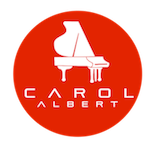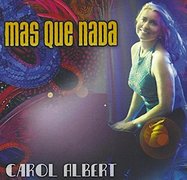 The new single release by Carol Albert, "Mas Que Nada," has achieved critical acclaim. The recent Global Peace Song Award winner says a jazz musician is like a marathon runner who needs to stay the course in order to win. Here she chats about her own musical path to success, and offers readers tips on how to elevate their own jazz journeys. All About Jazz: Please tell us how you decided to record your very engaging "Mas Que Nada." Is it a single from an upcoming album? Carol Albert: I performed "Mas Que Nada" in Europe in the '90s while working on cruise ships, and since it is such an upbeat, happy song, the audience always enjoyed it. Recently, after going through some personal hard times, I happened to hear the song again and suggested it to Trammell Starks, owner of Studiomagic in Atlanta. I even hired a Portuguese vocal coach in order to make sure I was singing the lyrics correctly. The result is a song that makes me feel happy every time I hear it. Yes, "Mas Que Nada" will be included on my next album, to be released in 2017. AAJ: How are you promoting your latest music? CA: Based on recommendations from other jazz musicians, I hired a great radio promoter. We are still in the process of our campaign. "Mas Que Nada" got the most added for two weeks in a row on the Billboard charts. We placed a couple of ads, with one just coming out now on Smooth Jazz Network. We did as much as we could to promote the single, even with a small budget. In addition, we are going to promote my Christmas album (Christmas Mystique) more this year. If you are not with a label, it's a one-stop shop, and you have to wear many hats. In my opinion, you have to get out of the box and do things differently. As an independent artist, what works for me may not work for the next person. You really do have to think on your feet. I do not have a very meticulous plan, and maybe I should. My goal at this point is to reinvent myself, get exposure, and get my name out there. AAJ: Some researchers have said that 90% of all digital music sales are lost to online piracy, which, of course, can make it cost prohibitive to even try to make a living in today's music business. How do you avoid the piracy issue? Are there steps you take to try to prevent crooks out there from stealing your music? CA: That is a question for someone who has more specific information than I do. I do the best I can, but I am in the same boat as everyone else. It is hard to stop piracy of your music. I don't think anyone has the answer for it. AAJ: Do you gig often, and does performing help you with sales? Is performing the main way you earn a living in music? Do you use the services of a booking agent, or do you book your own gigs? CA: I do perform frequently; I have a steady gig every Friday and Saturday night, where I sell my CDs and keep my chops up. I test out my new compositions on a live audience. Playing out is necessary, and I get creative on how to find ways to perform. I am always thinking, how can I make money in music? It is not always about recording. You have to be flexible, and think of various ways to succeed. I am fortunate to be able to say that I make 100% of my income from music. In the past, I have used booking agents while traveling in Europe. At this point, I am not using one. AAJ: How important is social media for album sales? Which of the various social media sites help your career the most? CA: I have been experimenting with Facebook for business by boosting posts. I just started doing it, but I have seen some pretty good results. I am still learning about social media and how it can benefit my music. I prefer Facebook over the other social media sites because it enables me to establish relationships and to build support networks between colleagues and other music makers. AAJ: Do you agree that jazz artists need to stand out from the crowd with their own style in order to gain mass recognition? If so, then how do you feel you stand out from other musicians in jazz? CA: Yes, I think that there has to be something special about the artist. The more authentic you can be, using whatever you have as your strength, can help you to succeed. For instance, I am not a straight ahead jazz player. The thing that sets me apart is that I blend elements of my classical training with different jazzy elements. I am able to use my arranging background to make songs sound special and different. AAJ: What do you feel are the biggest challenges jazz musicians face right now? CA: One challenge is to be a professional musician and make 100% of your income from music. Your income might come from teaching, or maybe from performing at corporate party gigs, playing in a mega church, and so on. Some players I know in Atlanta have other day jobs as well, but they keep going with their jazz. All the while, you have to keep up your chops as a musician. You have to love playing and keep that feeling alive in yourself. |
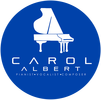
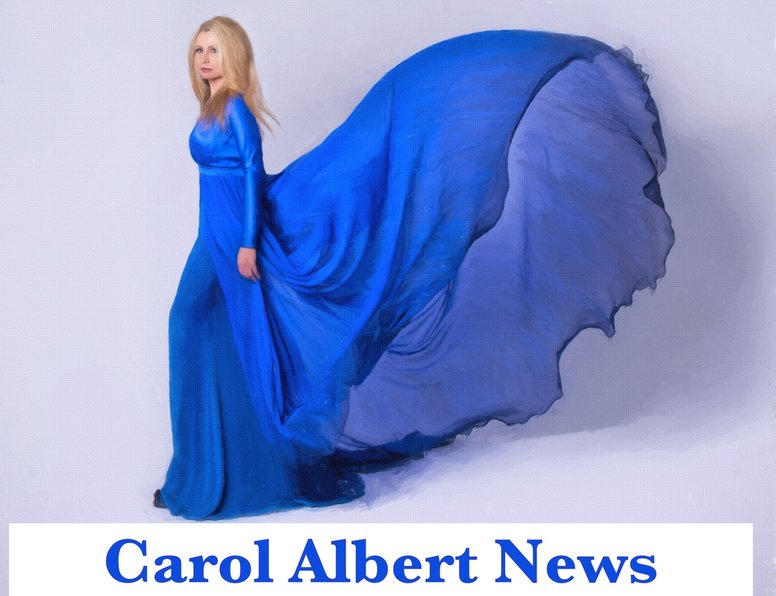
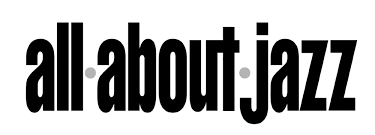
 RSS Feed
RSS Feed
